When Chicago got too expensive I booked a hostel in San Juan, P.R . San Juan is the place where many cryptocurrency enthusiasts are flocking.
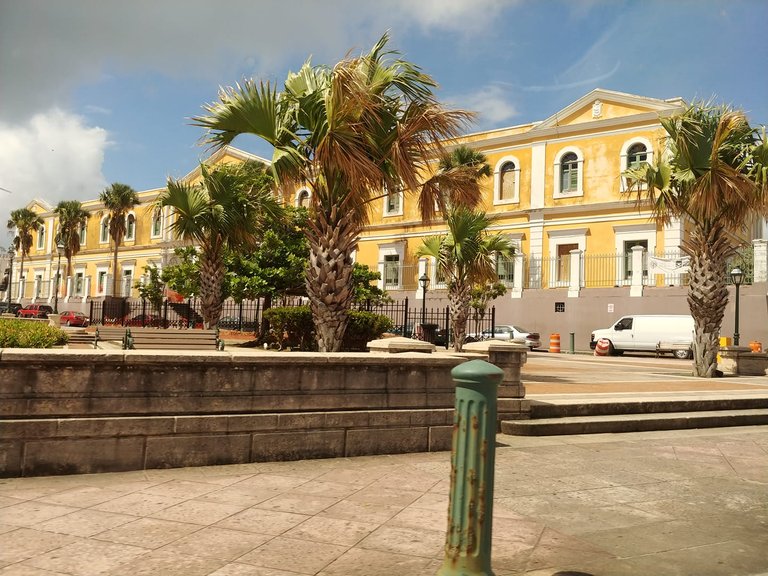
A building on the island
On Monday June 4th I arrived with some main goals in mind.
- Transcribe Coin Sailor into Spanish (CoinSailor.com is my project)
- Networking
- Programming skills
Spanish is important because of the news regarding 4,000 cryptocurrency ATMS in Argentina. Latin America also has many opportunities with Panama City, Panama and San Juan, P.R quickly becoming cryptocurrency hubs. Plus, Venezuela is a mess and working on a Petro crypto. In general, since I used to speak Spanish fluently, I have a reason to not lose it.
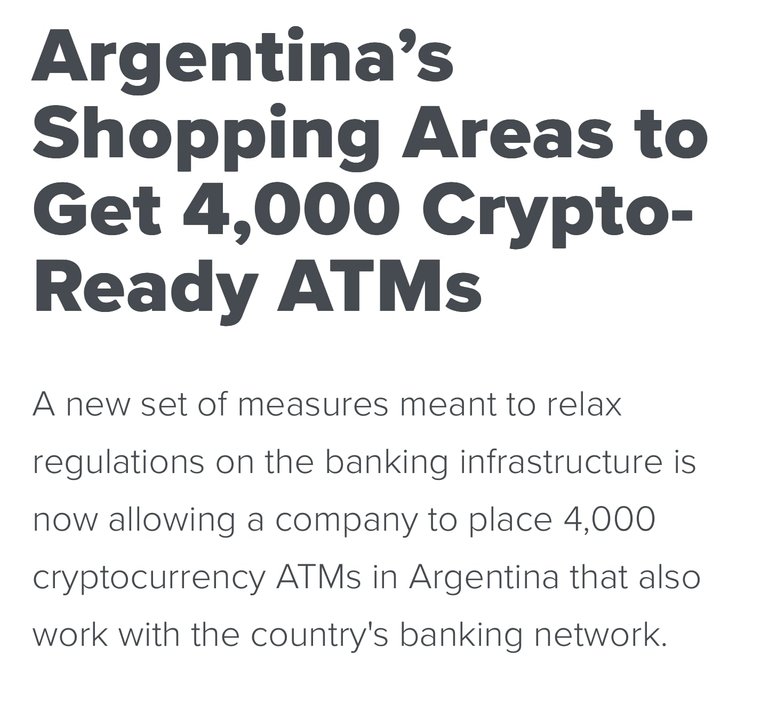
Networking at the first event went so well that by the second event I had 5 people greet me by first name and two of those hugs/kisses on the cheek type thing that's common here!
My agenda was coming along. I'd go to some local coffee shops and work. The first Saturday in San Juan I was able to meet with a friend April at a local farmer's market and composting class. It was great and met with other people interested in permaculture! That's where I met Charlotte; a teacher of microbiology with reforestation experience in India. She was here to give a workshop and teach local farmers how to improve their organic practices. A day later Charlotte checked into my hostel. Which was nice because we got to talk in the patio area about how we both arrived in P.R.
The reason I'm interested in permaculture and farming is because I originally went to school for plant biology at Montana State University - Bozeman. Which meant I was in the dept. of agriculture. I also did volunteering at some urban farms in Milwaukee such as Sweet Water Organics and Growing Power.
I learned that Charlotte used to work as a chiropractor and worked with about 100 end stage cancer patients. After talking to Charlotte for a few hours, at last minute she invited me to a local farm- known as fincas here. I gladly accepted. This finca was about an hour away in the mountains of Aibonito, P.R. We were hitching a ride with a Daniela Rodriguez who runs Siembra Tres Vidas near the finca we were to work on.
Siembra Tres Vidas grows eggplant, mesclun, arugula, tomatoes, onions, yuca and many other plants and vegetables. After Hurricane Maria the local water became very chlorinated so they can not just use regular water. They have to get large barrels purified.
As Daniela was giving Charlotte and I guided tour, I definately noticed the beautiful winds that made the heat of P.R bearable. Especially on such a beautiful finca in the mountains.
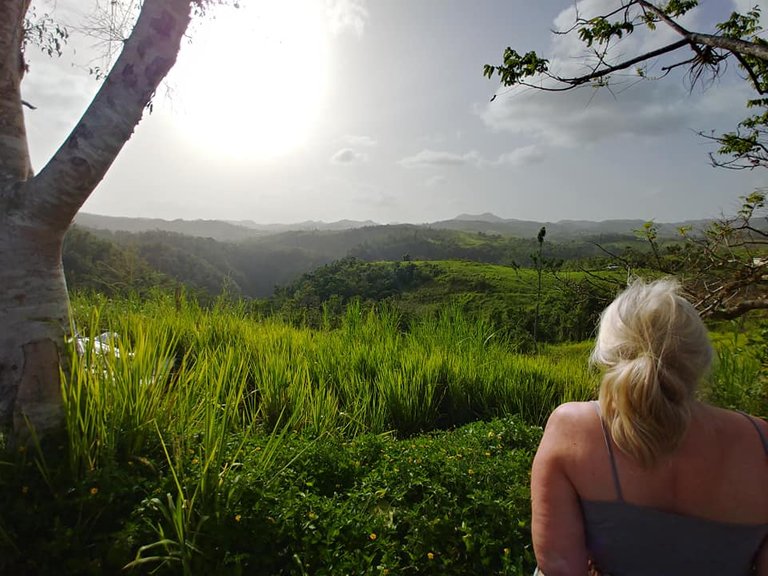
Charlotte is in the picture.
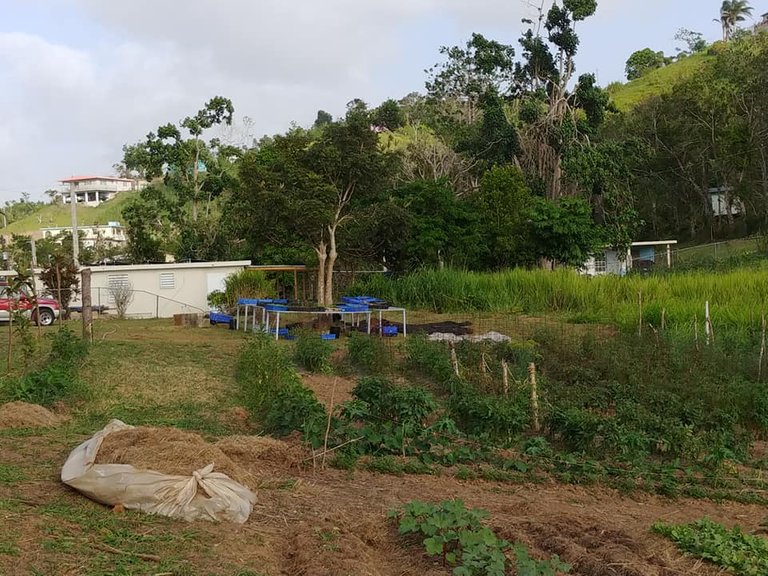
Siembras Tres Vidas.
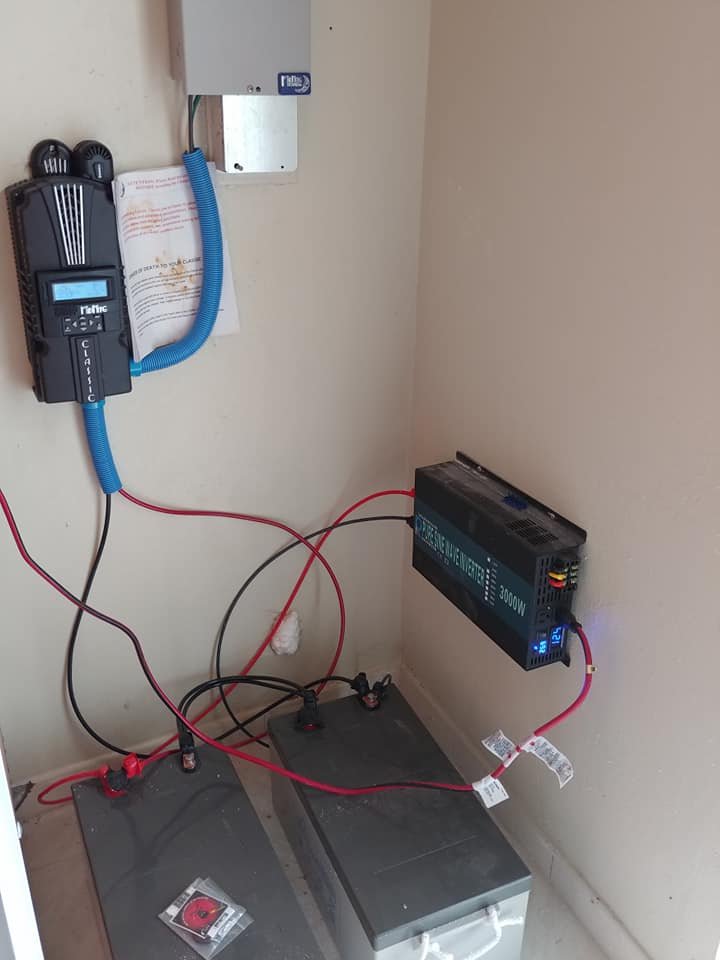
Siembra Tres Vidas is completely ran on solar power!
Charlotte and I slept at Siembra Tres Vidas for the night before Daniela picked us up to head to the work party at the other finca. I was unaware that a journalist from NPR (National Public Radio) was covering the finca in a story to be aired in August!
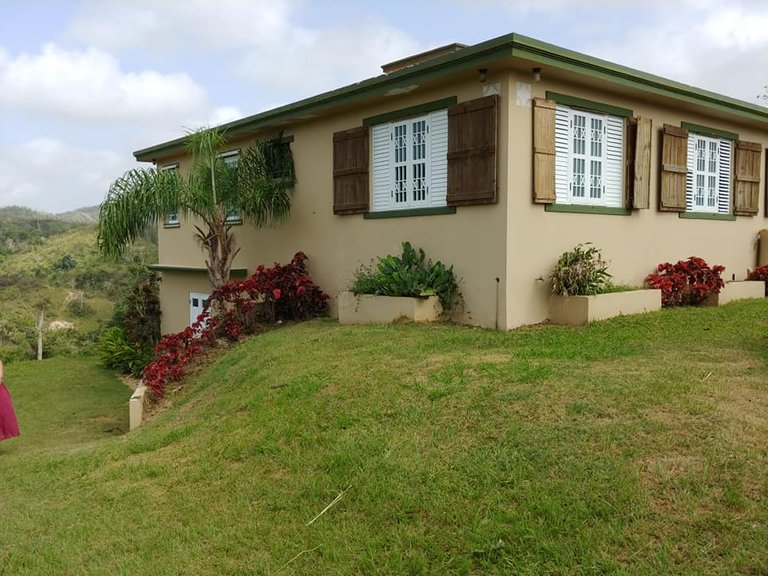
Another finca in Aibonito that I did not get the name of.
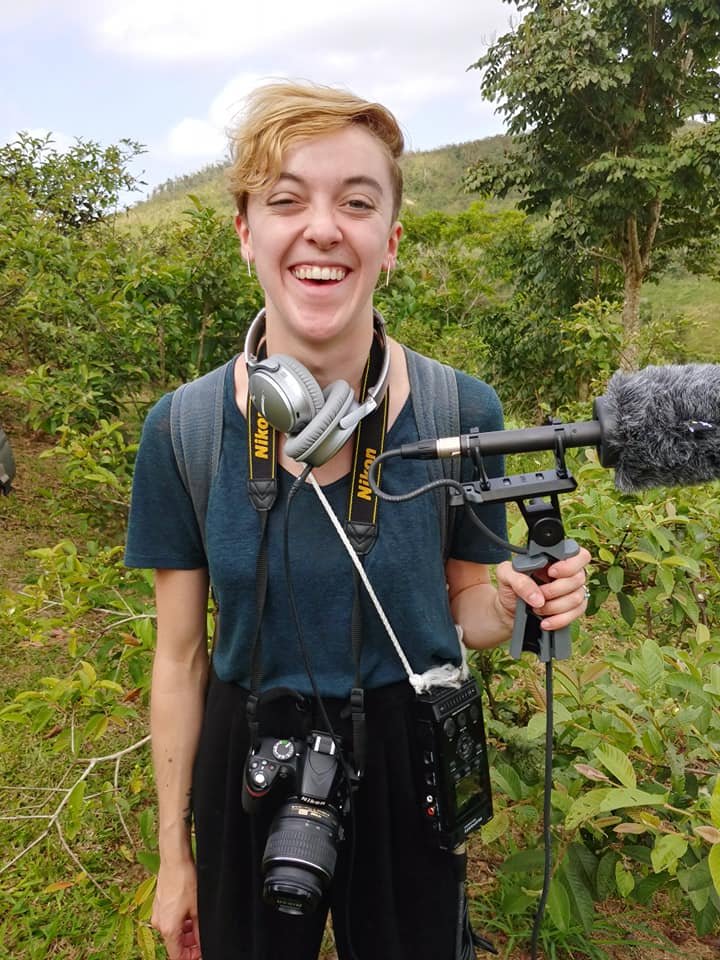
NPR journalist Paige Pfleger.
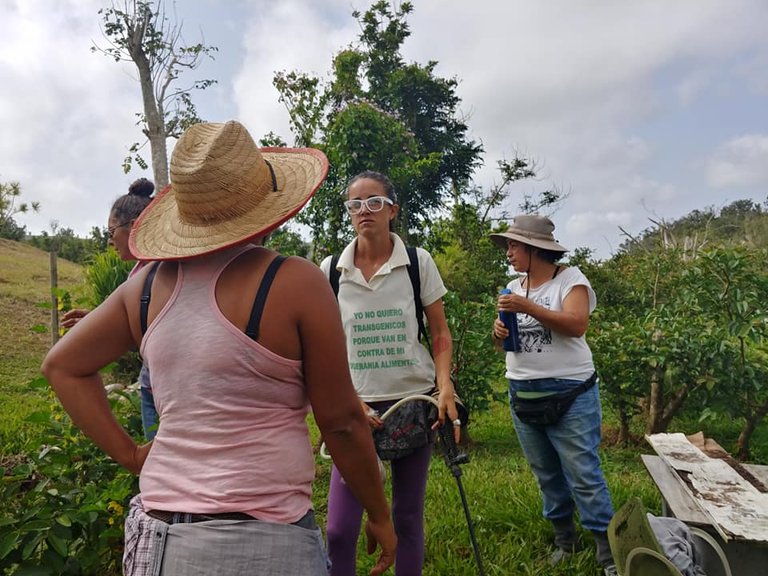
Daniela (center), Jessica (left), Onelia (right).
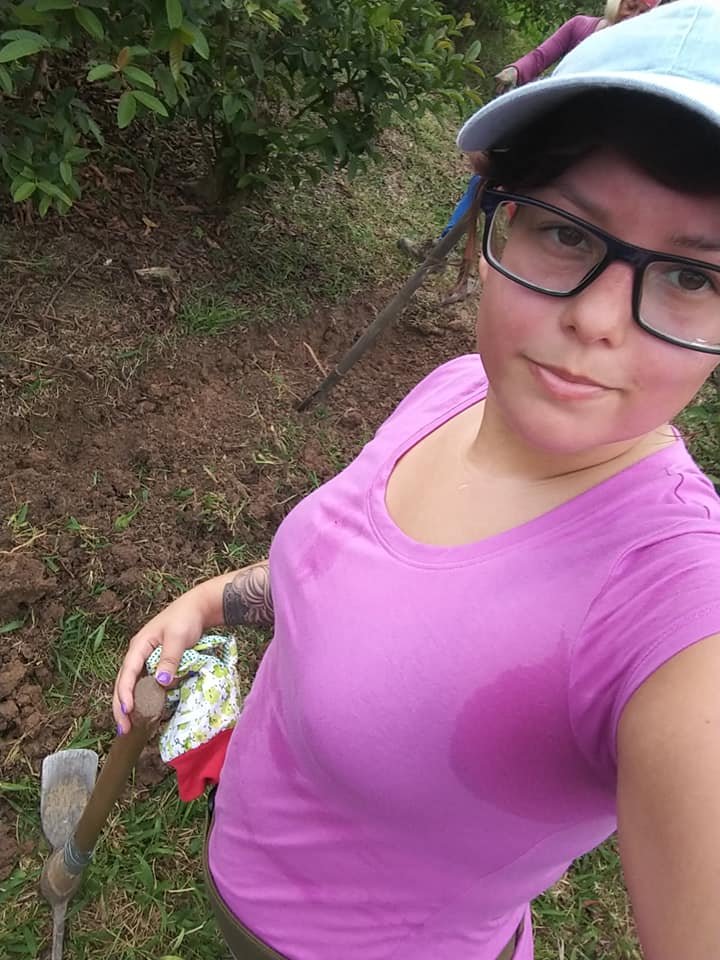
Pre-heat stroke face.
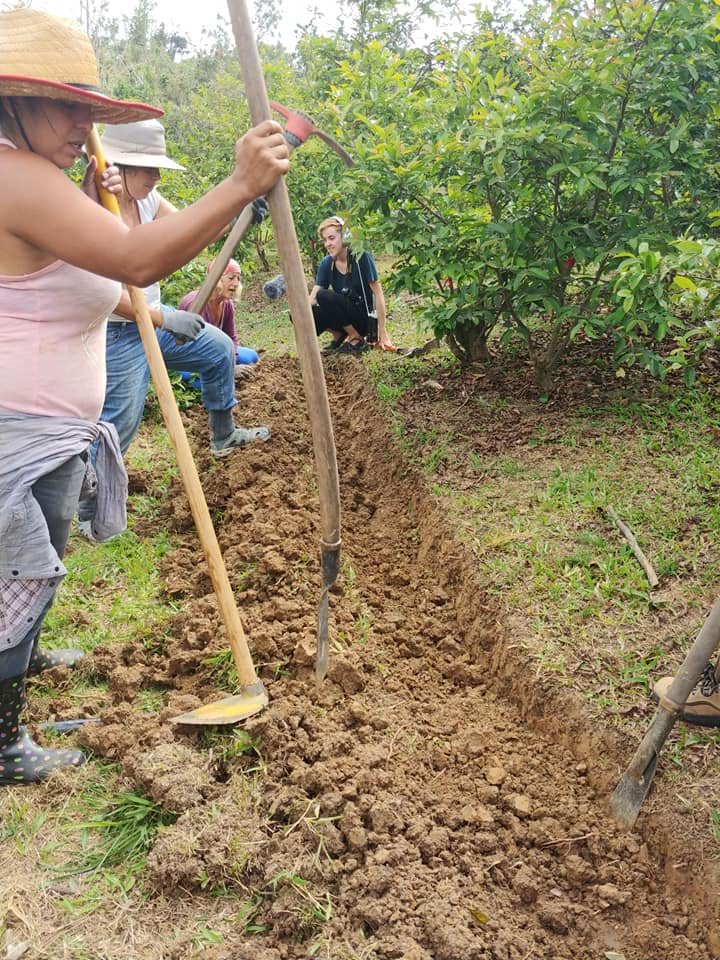
Us women digging a swale. Swales are a permaculture tactic to absorb water that runs down a hill. A contoured trough.
This finca was started by Janet Gavillan- Suarez, a former professor from the University of Puerto Rico. Which one? I am not sure because it was such a busy day with Paige needing to get interviews in, but I'm guessing San Juan?
It was great working with the local women and learning about how Hurricane Maria truly affected the locals and their reasons for coming to work on the farm. One woman was working just for food! On top of it she cooked us the food for lunch. She lost her job like many Puerto Ricans because many places closed and never reopened.
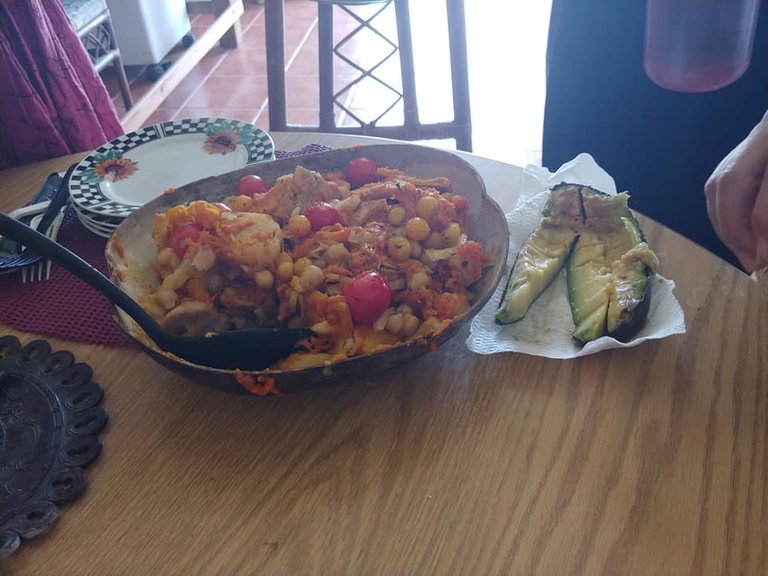
Lunch prepared by a woman who spent 4 hours in the sun digging two swales then spent time making this!
Many Puerto Ricans have blue tarps on their roofs. I heard this is due to disaster capitalism. The prices for construction materials were jacked up because of foreign money coming in to pay for them. Which means that Puerto Ricans who want to fix their properties must buy their materials at those prices.
After the work party at the first finca of the day, we went to Jessica's. Paige interviewed her and her husband.
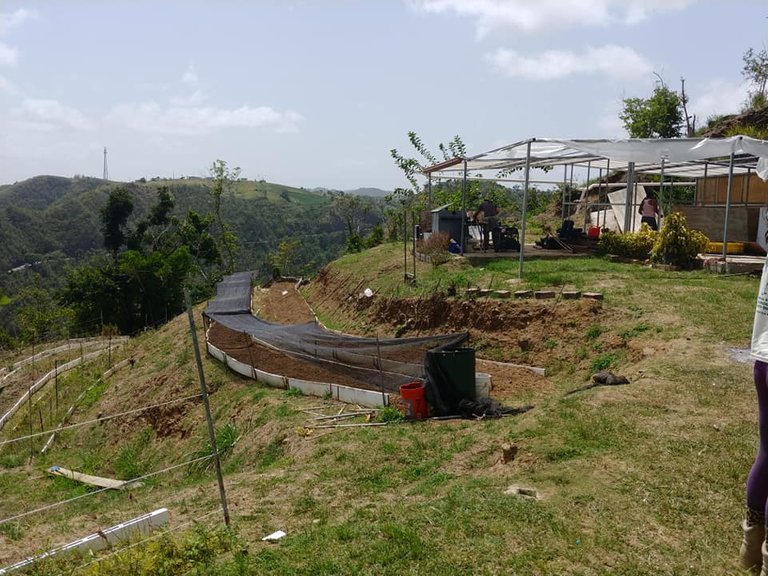
Jessica's finca.
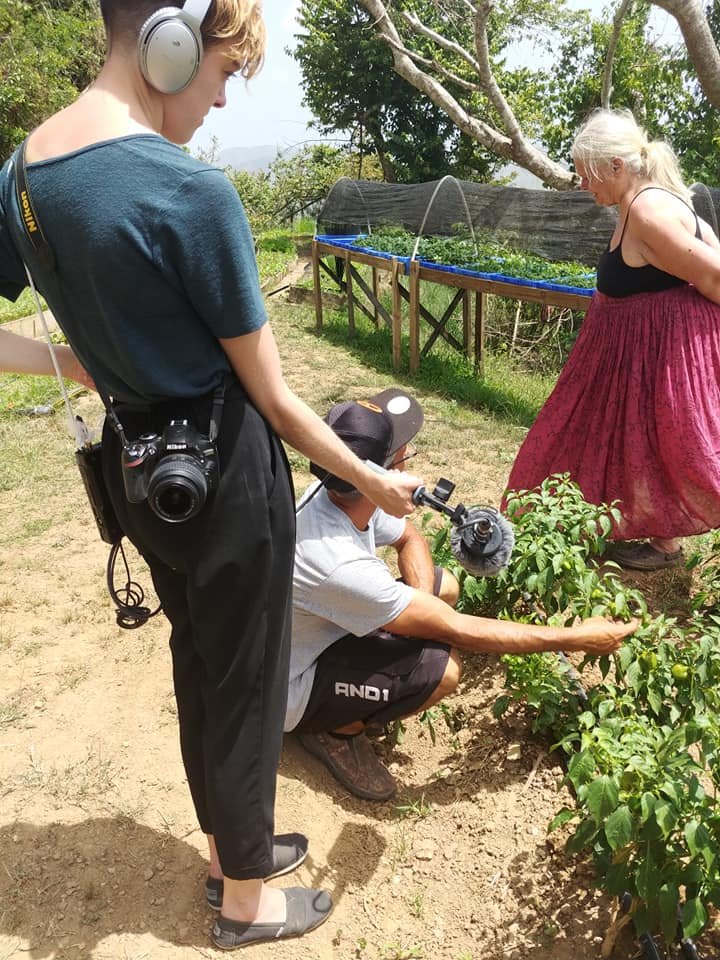
Jessica's husband talking about the peppers.
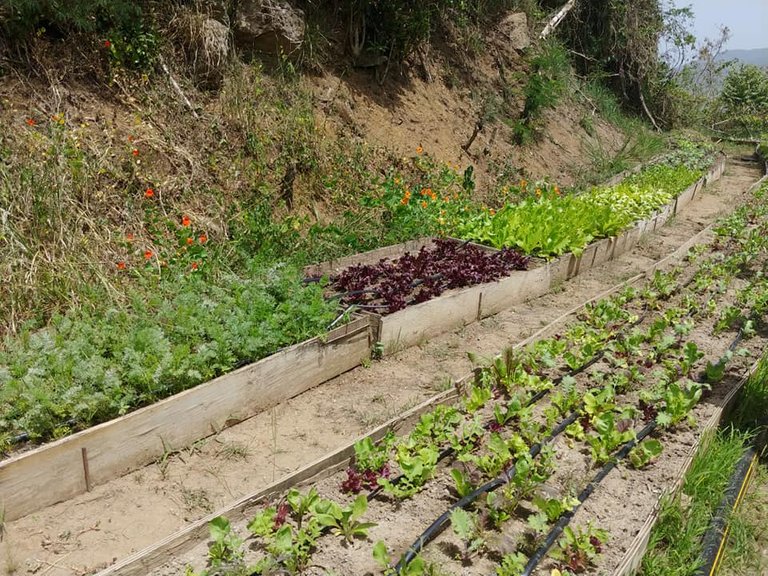
Orange butterflys and dozens of dragonflies surrounded us on this precious land. It felt magical.
Besides the farm knowledge I gained and many conversations about the local trees and animals, I talked about cryptocurrency when there was an application to it.
I felt like I truly was fulfilling my life's purpose. Part of wanting everyone to accept cryptocurrency is not forgetting that there is life outside of it. It's consumed my life and I've forgotten how it will have to blend in with other aspects of life. I got some great social data. Even in my private talk with Charlotte at the hostel and hearing how Indian farmers are scared of electronic money because it's associated with the devil; that's important for me to know. Yet, I know that if Russian farmers can accept cryptocurrency as their preferred method of payment it can be done elsewhere. It's really important that Coin Sailor is building community relationships in P.R if we plan to incorporate here. I had my concerns affirmed when I heard that P.R's are upset with the incoming cryptocurrency people because they come in after Hurricane Maria and the message people got was, "We know what's best for the island! Step aside." Then are shown having extravagant parties every night.
As a matching app to help beginners of any socio-economic group get into cryptocurrency I really need to understand them. I've asked many people in the U.S who aren't in cryptocurrency and I've been learning a ton.
When my mom was talking about Ethereum, her friend asked, "Is that a precious metal or an element?"
When learning about smart contracts, "Am I forced to sign a contract to use the cryptocurrencies?" Good point, lots of contracts for phones and stuff out there.
About using it in some economically disadvantaged areas, "Can I take it (cryptocurrency) to a pawn shop."
One of the biggest challenges in this cryptocurrency and blockchain space is all talk and no action when it comes helping average people use or understand the currency or technology. Education is highly segmented- created by professional technologists and professionals in finance or trading. Even if people in this space have been in cryptocurrency or blockchain for 1 or 3 years. It's most likely they were in finance or technology for at least 5 or 10 years minimum. There is a huge disconnect from getting the input and feedback from people who are not from these sectors. Coin Sailor is boots on the ground and has asked regular people for their feedback. Coin Sailor is down to earth and willing to let people feel okay not knowing about a complicated topic.
Overall, this was an amazing first week! Oh, just as I was about to write this article another guy in my hostel is into Bitcoin and cryptocurrency as well! He's on steemit too!
I'll be writing another Puerto Rico & Cryptocurrency article next week!! Stay tuned!!
Hey @, great post! GOOD
I enjoy your content Keep up the good work! It's always nice to see nice content on Steemit! :)
Hey @, great post! GOOD
I enjoy your content Keep up the good work! It's always nice to see nice content on Steemit! :)
This is awesome. Hopefully your interactions with Paige will help get the message to consumers of liberal media that cryptocurrency isn't just for illegal activities. It's useful for everyone. I'll have to make a point to listen to that segment when it airs.
Well done, really down to earth article. You bring us close to the vision of what could be achieved on the ground level. I look forward to seeing more of what you will do in this space.
@originalworks
You have a minor misspelling in the following sentence:
It should be definitely instead of definately.